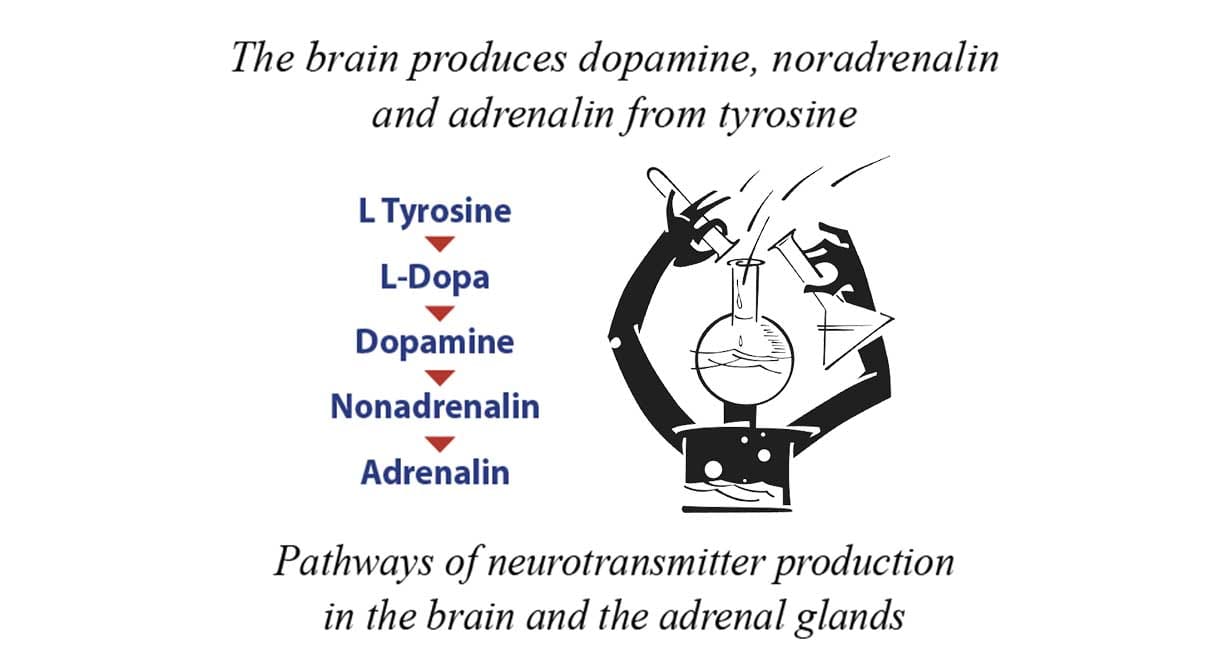Is Excess Stress Affecting Your Eating Patterns Or Weight?
Stress – if prolonged – is very bad for your health, and if not controlled, shortens the life span of many people.
Prolonged stress will adversely affect your adrenal glands and your brain chemistry, and this can contribute to unwanted weight gain and make it harder to lose weight. Stress can cause the adrenal glands to produce excess cortisol, and this increases insulin resistance, appetite, and fluid retention. Adrenalin levels can be depleted in those who are overweight and chronically stressed. Low levels of adrenalin will result in fatigue, low mood, and a slower metabolism.
Supplementing with magnesium, vitamin C and the amino acid tyrosine can help the adrenal glands and the nervous system cope better with stress.
Tyrosine is needed for the brain to make the neurotransmitter dopamine and for the adrenal glands to make the neurotransmitter adrenalin. Low levels of dopamine can make you depressed, unmotivated, and unable to feel satisfaction. Your brain needs tyrosine to make the neurotransmitter dopamine. Tyrosine can be used to reduce cravings for addictive foods.
A magnesium supplement can help to physically relax your whole nervous system and muscles; helping to make you calmer during the day and improving your quality of sleep at night. Magnesium also helps to stabilise blood sugar levels thus reducing cravings.

Look into changing or avoiding situations that cause you to become stressed. If you cannot do this then investigate strategies to improve how you deal with stressful situations. Try to mix with positive supportive people and keep your distance from people who are critical and judgemental of you.
Try to keep calm. Cool, calm, and collected people rarely binge eat. Stress is one of the biggest factors that gets people off the rails when it comes to their diet. Many people use eating as a coping mechanism to deal with difficulties in their life and unpleasant emotions such as loneliness, guilt, grief, or anger. Seeing a counsellor can help a lot. I recommend the support group Overeaters Anonymous if you need help with food and/or sugar addiction.
It is ok if being overweight stresses you out, but you need to turn this stress into productive energy (or even a bit of anger) that you can use to make good changes in your behaviour. Avoid anxiety and be persistent in making positive changes. It is true that “whether you think you can or you think you can’t, you are right. It is self-belief and persistence that will get you to your goal. Do not let negative talk from yourself or other people sabotage you.
Strategies to reduce stress and anxiety may include learning to do yoga or tai chi, meditation, taking a course on stress management, consulting a counsellor for cognitive therapy, doing regular exercise, and reading self-help books.
Recommended books
- “Help for Depression and Anxiety” by Dr Sandra Cabot MD
- “Want to Lose Weight but Hooked on Food” by Dr Sandra Cabot MD and Wendy Perkins
- “The Road Less Travelled” by Scott Peck MD
- “The Seven Spiritual Laws of Success – A Practical Guide to the Fulfillment of Your Dreams” by Deepak Chopra MD
- “Breaking the habit of being yourself” by Dr Joe Dispenza
- “Stillness Speaks” by Eckhart Tolle
- “Mindfulness. Living in the moment. Living in the breath.” by Amit Ray PhD
- “Peace is Possible” by Prem Rawat
- “The Prophet” by Kahlil Gibran
- “The Archetypes and the collective unconscious” by C.G Jung
- “The Holographic Universe” by Michael Talbot
- “Super Brain” by Deepak Chopra MD and Rudolph E Tanzi PhD


Leave A Comment